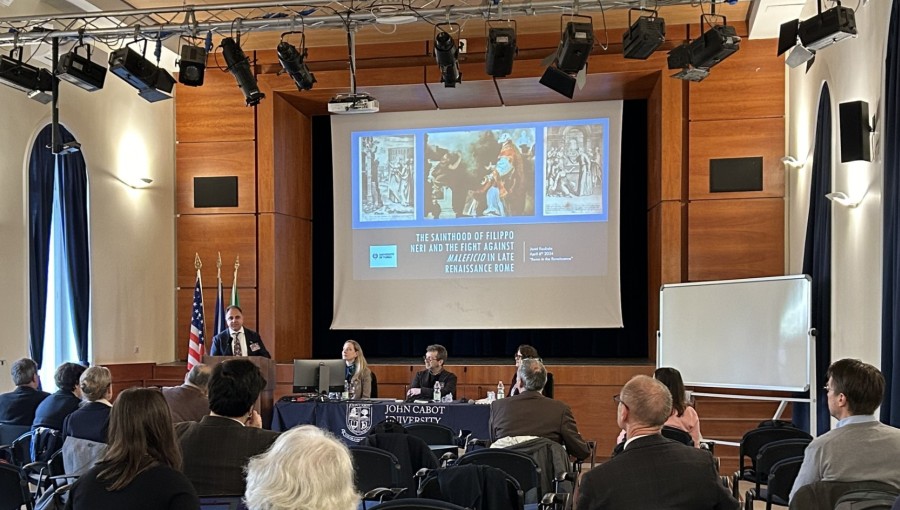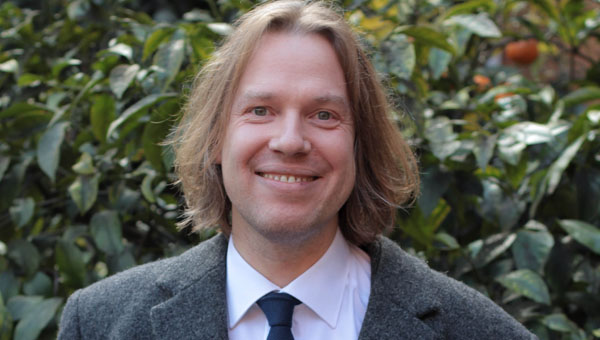Are We Living in a Computer Simulation? A Discussion with Prof. Sorgner
John Cabot University Philosophy Professor Stefan Lorenz Sorgner was featured in episode 3 of The Life Cycle, a podcast designed by Klang Games, on the future of humanity. Episode 3, called “The Simulation,” deals with the question of whether or not we might be living in a computer simulation. Elon Musk, technology entrepreneur, investor, and engineer, argues that the chances that we do not live in base-reality are very high. Professor Sorgner believes that humans do not have any good reason for regarding this claim as plausible.

Professor Stefan Lorenz Sorgner
Prof. Sorgner rebuts Musk’s claim by stating that no digital living entity exists so far. In his 2018 monograph Schöner neuer Mensch (Brave New Human) by Nicolai Publishing, Prof. Sorgner refuted Stephen Hawking’s argument that a computer virus can already count as a living digital entity, as it possesses the capacity of self-replication. Prof. Sorgner stresses that a metabolism is central for any entity which we regard as being alive, which is a capacity a computer virus does not possess. Contrary to living beings, computer viruses cannot autonomously generate the energy they need to exist.
In addition, a necessary prerequisite for transferring our carbonate-based personality onto a silicon basis without any loss is the existence in the world of “discrete entities”. Only discrete entities (consisting of distinct or unconnected elements) would make digitalization without any loss possible. Science, however, sheds doubt on the feasibility of this thought, as Heisenberg’s uncertainty principle implies that certain phenomena can only be interpreted as waves. If this is the case, then base-reality consists of a continuum that cannot be digitized without any loss.
According to other studies, energy only turns up in an integer multiple of Planck’s constant. In keeping with this insight, Planck’s constant represents a basic, quantifiable entity thus implying a discretely-structured world. The available scientific state of the art is non-conclusive, which sheds doubt on the possibility of digitizing human personalities.
Both the aforementioned arguments present reasons for considering the simulation theory as implausible, even though it has widely been discussed by many leading thinkers, researchers, and intellectuals.
The philosophical background of Prof. Sorgner’s reflections are explained in his recent discussion with novelist and film director Kathleen Bryson, British author and tv storyliner Rebecca Levene, and Professor of Evolutionary Anthropology at University College London Volker Sommer, at the Art Biennale in Venice on the transhuman. On the 20th October 2019, these four thinkers were invited to Venice to discuss the theme of the “TRANSHUMAN”, as all of them have been working on the impact of emerging technologies on the future of humanity. The discussion was live-streamed on the website of the Art Biennale in Venice. It was a “Clandestine talk” which took place in the context of the project “Thinking Head” by the Italian installation artist Lara Favaretto. The recording presents the state of the art concerning scientific and artistic insights on the possibility of technologically enhancing human beings.





